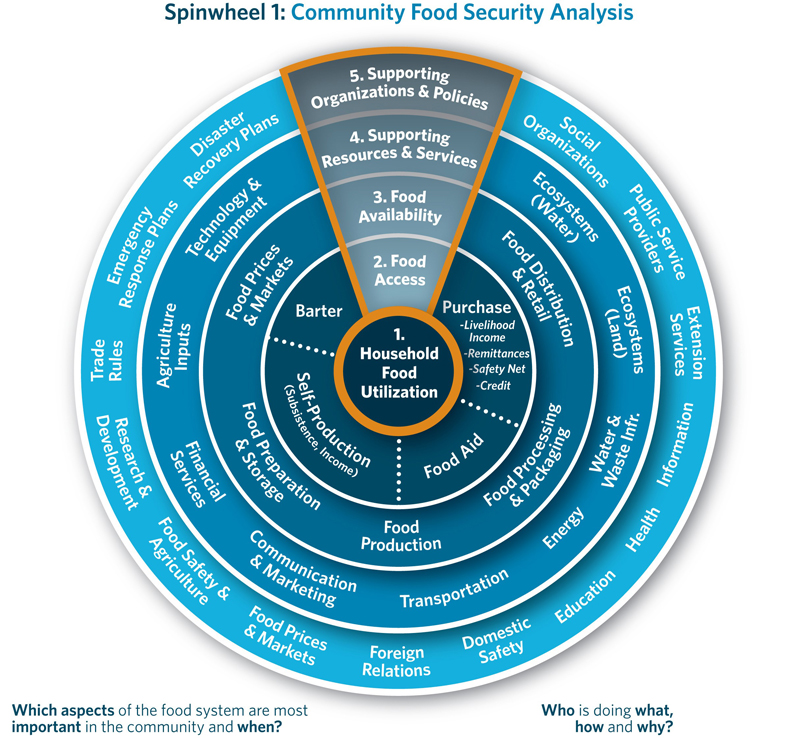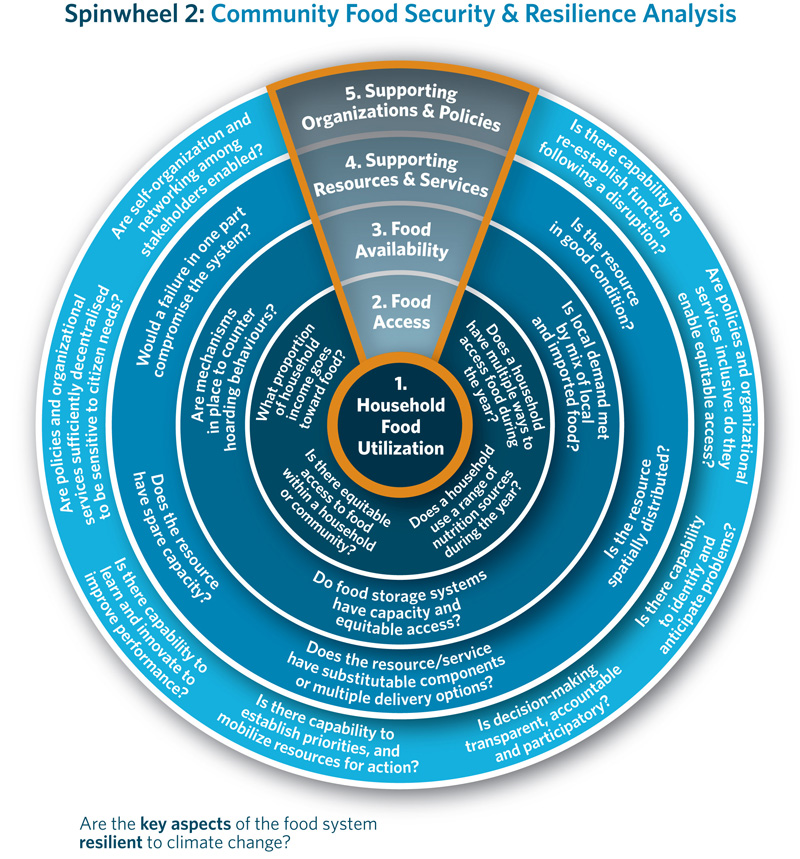New framework will help strengthen climate resilience and food security in Central America
New framework will help strengthen climate resilience and food security in Central America
A framework for planning and monitoring
Resilient food systems underpin food security. In other words, they ensure that “all people, at all times, have physical and economic access to sufficient, safe and nutritious food that meets their dietary needs and food preferences for an active and healthy life” (World Food Summit, 1996), despite climate shocks and stresses. Climate variability and change can disrupt key elements of food systems, affecting the availability of food as well as peoples’ ability to access and use it. Whether it is a household suffering from the loss of their subsistence crops due to drought, or a district being cut off from food markets because floods have damaged access to roads, these disruptions can increase the risk of hunger, malnutrition, and poverty.
To better understand the complex relationship among food systems, food security and climate change, IISD, in partnership with ISET, ACF-E, CURLA, UCA and Nitlapán, funded by the Climate and Development Knowledge Network (CDKN), recently released a conceptual framework for assessing, planning and monitoring climate resilience and food security at the community, regional and national levels. This framework is presented in the newly released working paper Climate Resilience and Food Security: A Framework for Planning and Monitoring by Tyler et al.
Most research to date has focused on the direct impacts of extreme events such as storms, droughts and high temperatures on food production. However, other aspects of food systems, such as the services supporting food availability or access, are also likely to be affected by climate extremes (back to the broken supply routes and market access mentioned above). The impacts from highly uncertain future climate events on complex food systems cannot be predicted with any confidence. Instead, the authors recommend that communities and policy-makers should assess the resilience of these systems to a broad range of anticipated and potential impacts.
The framework itself has guided the development of practical tools that help operationalise and measure resilience. These include the “CRiSTAL-Food Security” tool (“Community-based Risk Screening Tool – Adaptation and Livelihoods – Food Security”) – a tool that helps communities assess the climate resilience of their food systems, identify actions to build resilience and develop indicators to monitor progress. The CRiSTAL-Food Security tool is being tested in field applications in several communities and regions across Central America.
A visual guide to discussions on food security and climate resilience
Both food security and climate resilience are complex. Both result from the interaction of many dynamic factors in ways that resist simple linear projection. In order to provide practical guidance to decision-makers at the community or national level, conceptual frameworks that can explain how food security and climate resilience work within complex food systems need to be developed and put into practice.
To respond to this gap, a conceptual framework visually represented by two spinwheels, including food system elements and resilience factors, was developed with insights from the existing literature and partners’ field experience in Nicaragua, Honduras and Guatemala. The spinwheels allow analysts and practitioners to visualise the different levels of the food system and different aspects of resilience that affect food security. They are focused on the household, where food security starts, and also encompass influencing factors from the community to the national scale. Indeed, the framework is flexible enough to be used to support analyses at both the community and national levels.

The framework was developed through the Climate Resilience and Food Security in Central America (CREFSCA) project. The project aims to strengthen the long-term food security of vulnerable populations in Guatemala, Honduras and Nicaragua by improving the climate resilience of food systems at different spatial and temporal scales.
